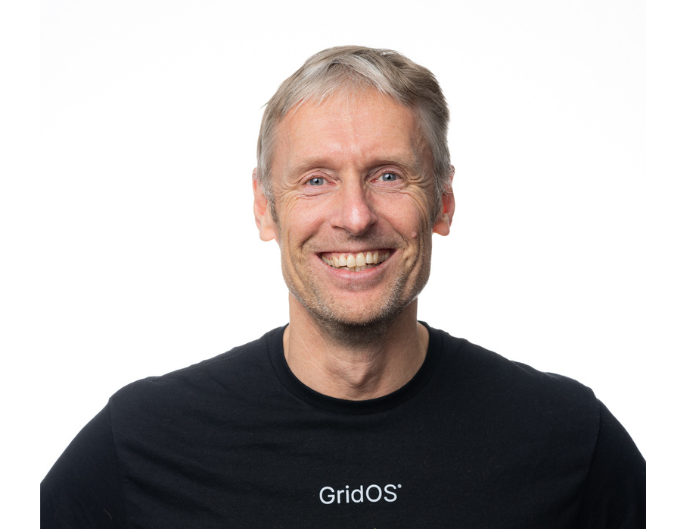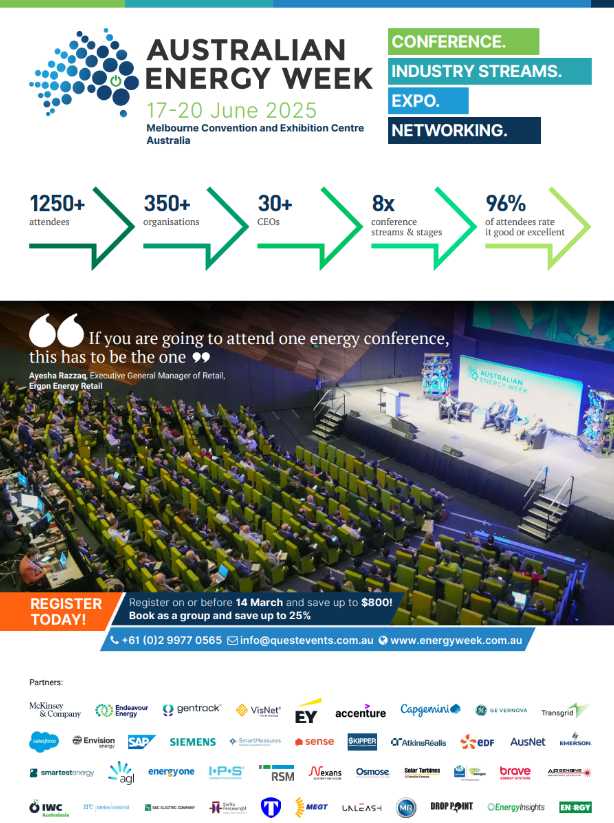Article: 5 questions with Thorsten Heller

In the lead up to Energy Week 2025, we sat down with Thorsten Heller, CEO & Co-founder, Greenbird Integration Technology; Chief Innovation Officer GridOS, GE Vernova to hear his take on the energy transition from an international perspective.
In your role at GE Vernova, what are the big questions that keep you up at night right now?
In my role, the key question is how we can effectively leverage emerging technologies to optimize our energy solutions. Today, the biggest question is how the future AI empowered control rooms will transform the grid effectively and reliably with the fast-changing network conditions like weather, DERs, intermittent resources, decarbonized transport, cyber threats etc.
As we are moving rapidly into AI driven grid orchestration, the second question is how we can verify / validate continuously the AI models, to build trust and confidence.
What are the most exciting opportunities for the energy sector that could emerge before 2030?
First, stepwise adoption of AI would ensure the resilient, reliable, and sustainable management of the future grid amidst fast-changing conditions and event. From using AI/ML to analyse large datasets to help operators make better decisions, to propose and recommend grid actions, and eventually to an AI empowered virtual operator managing the grid with minimal human intervention (a kind of autopilot orchestrating the grid with human operators monitoring and handling exceptions).
Secondly, edge computing with grid edge intelligence / grid edge AI will create enormous benefits regarding stability and efficiency of the end-to-end grid operations.
With a NEM market review underway, what do you see as the most pressing areas to change?
Many utilities still operate in silos both from an organizational and a systems' point of view. We cannot orchestrate the future grid with system or organizational silos. The industry must adopt integrated intelligent workflows that transcend system and organizational boundaries.
What innovations do you believe will have the most impact on the energy transition?
- AI
- Cloud
- Edge
AI: Without AI, we will not be able to plan, orchestrate or manage the future grid. Without AI/ML, grid operators will just be overwhelmed with all the data, all the events happening or all the situations to tackle. So, I believe AI on top of a "good" data foundation will become the backbone for the future grid.
Cloud: Leveraging the power of cloud services / hyperscale workloads for tasks where we need dynamic, elastic, and endless scalability in our systems (example: visual intelligence / vegetation management, outage prevention, outage management, DER forecasting, etc) will create huge benefits & advantages.
Edge intelligence: Deploying intelligence close to the grid edge will finally lead us towards a distributed energy system.
What’s the one thing in the energy sector that no one is talking about, but should be?
Not one but three key factors- skills, competency, and talent. We, in the utility industry, are managing the most complex real time system. We need our systems to run on modern technology to ensure reliable system operations. We need to use modern analytics, data science or AI skills to tackle all challenges ahead. Utilities must recruit and keep talent with the required skill sets: data, analytics, AI, containers, etc. The skills are needed now and must combined with the experience and knowledge about the physics of the power system.
Join us at Australian Energy Week 17-20 June 2025 to hear more from Thorsten Heller and a host of other energy leaders. Learn more.
To access the detailed conference program, download the brochure here.
Download the Brochure


